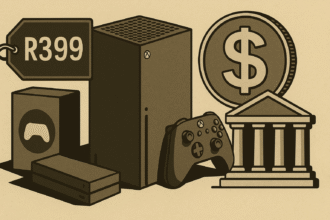Cryptocurrencies are no longer a niche curiosity. They are moving trillions, challenging the traditional banking system and posing an uncomfortable question at the heart of global finance: What if the money of the future doesn't need the State?
Throughout history, currencies have emerged from the market — and were later appropriated by governments. Today, with the advancement of decentralized technology, this cycle may be about to reverse.
The question now is not whether there will be a new monetary era, but what will be the nature of the money that will prevail:
Free, decentralized and competitive?
Or centralized, traceable and politically programmed?
The market wants independence — the State, control
The expansion of cryptocurrencies shows a clear demand for financial freedom.
From El Salvador to Zimbabwe, Argentina to the US, millions of people are using crypto assets to escape inflation, sanctions, surveillance and institutional instability.
But governments do not give up control easily. That is why, alongside the advancement of the cryptoeconomy, there is also a growing effort to regulation, taxation and state replacement via CBDCs. It's a real silent currency war.
What's at stake: more than technology, it's sovereignty
The future of finance could follow two very different paths:
- A system open, competitive and voluntary, where private currencies coexist and compete freely — as dreamed Hayek in Denationalization of Money
- Or a system closed, digitized and politically managed, where central banks monitor every transaction and define what can be done with your own money
The choice that society makes It won't just be about efficiency — it will be about freedom.
The libertarian perspective
The Austrian School has always argued that money should not be anyone's monopoly. Monetary competition is the key to protecting individuals from inflation, censorship and political manipulation.
As stated Rothbard, “monetary freedom requires the total separation of State and currency.”
Conclusion
Cryptocurrencies are more than just assets — they are instruments of individual sovereignty.
The battle between decentralization and control is just beginning.
And the future of money will depend on Who wins: the market or the digital Leviathan.





